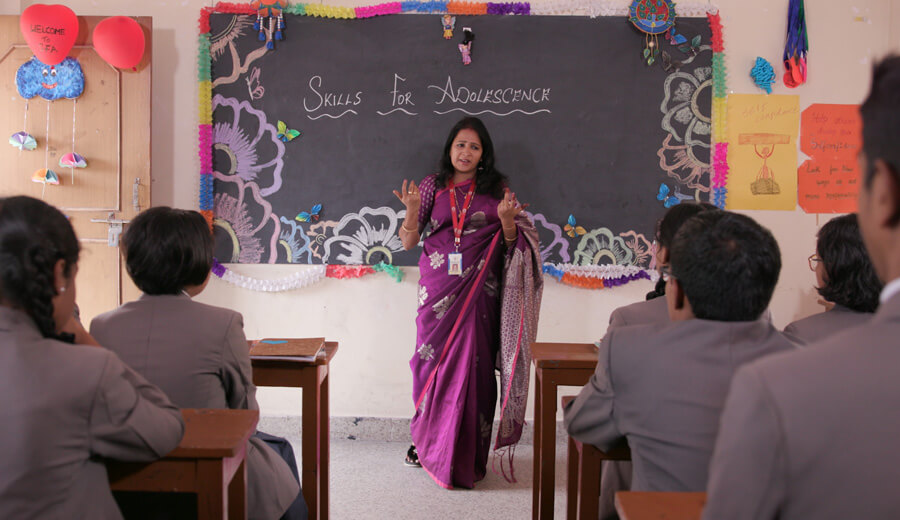By: Shelby Washington
Over the course of four decades, Lions Quest has made a profound impact on youth, experienced exponential growth and formed meaningful partnerships to help young people reach their full potential. Lions Quest is Lions Clubs International Foundation’s (LCIF) comprehensive and universal, evidence-based social and emotional learning program. This year marks the 40th anniversary of LCIF’s first grant to what used to be the independent organization, Quest International. Over the years, the two organizations grew closer, leading LCIF to purchase the program in 2002. To date, LCIF has awarded more than 360 grants for a cumulative total of more than $20 million to expand or establish Lions Quest programs across the United States and around the world. Exponential growth has been the natural result of this investment, with 20 million students reached in 40 languages across 110 countries.
In India alone, over 2 million students have benefited from Lions Quest and nearly 40,000 teachers have been trained, thanks to Past International President Rohit Mehta’s decision to bring the program to students across the country.

Lions Quest’s story began in 1975, when a determined teenager named Rick Little set out on a “quest” to help other young people develop the skills and strength of character needed to succeed as adults. Little started his journey by conducting a survey of over 2,000 high school students to truly understand the issues that concerned them most. The initial success prompted expansion into programming for middle school students and the development of Skills for Adolescence, which pioneered a social and emotional learning program for young people before it was a trend.
With the same spirit of innovation, Lions Quest has undertaken a full-scale revision of the curriculum, training and supplemental content. Alvin Atkinson, a member of the Winston-Salem Twin City Host Lions Club says, “Youth today are not like youth 10 to 15 years ago. Fortunately, because Lions Quest is evidence-based, it sees what works and what doesn’t and evolves as technology and our lives evolve.”
In the new curriculum, materials are being revised to be more dynamic and student-centered, while also being shorter and more streamlined. The goal is to make the lessons easier to use and more effective. Each curated resource works seamlessly to help children and young adults acquire and effectively apply the knowledge and skills necessary to understand and manage emotions, set and achieve goals, feel and show empathy for others, establish positive relationships and make responsible decisions. Chip Harris, trainer at Lions Quest says, “I think the social and emotional learning pieces of the Lions Quest program are critical. They were critical when I started my career over 40 years ago, and they’re equally, maybe more important today, largely because social and emotional learning brings people together, and allows them to be able to respect and appreciate each other.”
In only four decades, Lions Quest has shaped social and emotional learning for millions of youth around the world. As the program evolves, it will continue offering students curriculum and resources to build the skills needed to navigate life and prevent bullying and substance abuse. This proactive evolution will propel Lions Quest’s legacy of innovation into the next decade.
Visit lions-quest.org to learn more.

